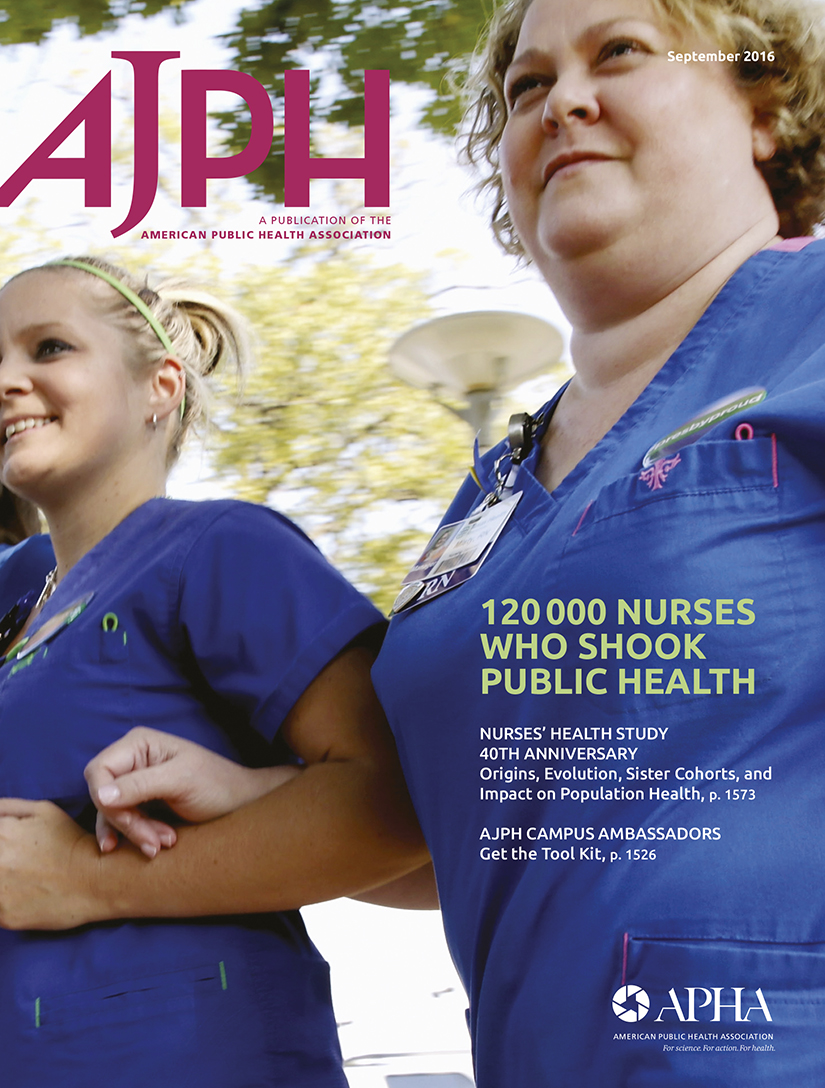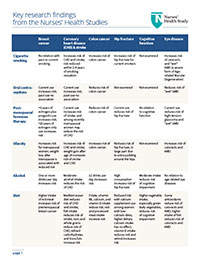The Nurses' Health Studies have made important contributions to scientific knowledge and public health. The success of these studies is due to the long-standing dedication of participants and investigators. In addition, investigators have developed and followed a research process that promotes research reproducibility and transparency throughout the years. We also have a commitment to team science, including active participation in many external collaborations and consortia spanning a wide range of diseases and phenotypes. See the table at the bottom of this page for selected key scientific findings from the Nurses' Health Studies.
The studies' unique strengths, including regular follow-up of study participants since 1976 and repeated assessment of health and lifestyle factors, have allowed them to play an instrumental role in shaping public health recommendations. For example, the Nurses' Health Study helped uncover early links between cigarette smoking and cardiovascular disease, and between postmenopausal obesity and breast cancer. Also, research on the impact of diet on health in the Nurses' Health Studies has informed dietary recommendations, including national dietary guidelines.
Data collection and assessment
Due to our questionnaire-based data collection methods, our investigators are leaders in developing and evaluating methods to assess a variety of factors, such as diet, physical activity, and adiposity, using questionnaires. For example, the ability to assess the role of diet in disease risk was made possible by NHS II PI Walter Willett's development and validation of the Willett semi-quantitative food frequency questionnaire (FFQ). The FFQ is now a standard tool in the epidemiologist toolkit around the world.
Biomarker research
The biospecimens (e.g., blood, urine, toenails) provided by participants have allowed for an extensive range of research into disease mechanisms. For example, our investigators have examined how plasma sex hormones, nutrients, inflammatory markers, and heavy metals (in toenails) influence disease development. Also, white blood cells and cheek cells from participants provide a source of DNA for genome-wide association studies (GWAS), sequencing, and assessment of telomere length. Participant red blood cells offer a time-integrated assessment of fatty acids and folate, among others. Below are a few examples of contributions of the Nurses' Health Studies to cancer biomarker research:
- One of the first studies to prospectively show an association between circulating sex hormones and postmenopausal breast cancer risk; this research helped lead to hormonal therapies for breast cancer prevention and treatment.
- One of the first prospective studies to observe an association of higher vitamin D levels with lower risks of both colon polyps and colon cancer; this work contributed to the design of the Vitamin D and Omega-3 Trial assessing vitamin D in disease prevention.
- As a member of the National Cancer Institute's GAME-ON consortium, the Nurses' Health Studies play a key role in GWAS discovering genetic variations involved in cancers and cancer-related factors, including mammographic density, body mass index, height, skin pigmentation, and circulating biologic markers.
The Nurses' Health Studies will continue to provide valuable information as researchers pursue scientific questions relevant to participants' life-stages and leverage cutting-edge advancements in biomarker assay technology and data analysis methods.
Key research findings



